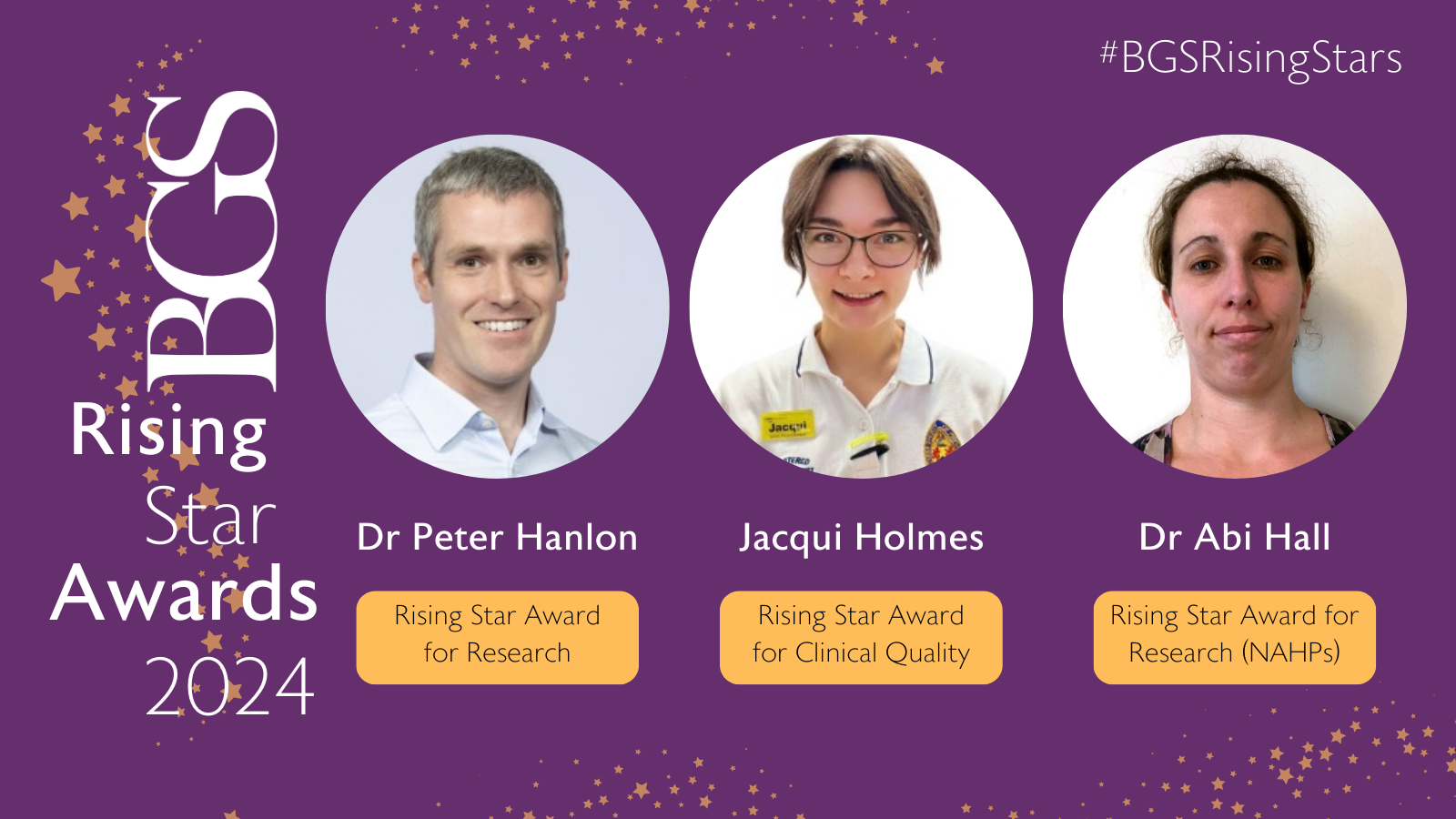Dr Peter Hanlon is a GP and a researcher at the University of Glasgow with a special interest in healthcare for older people. He received the BGS Rising Star Award for Research in 2024.
I am hugely grateful to the BGS for the Rising Star Award for Research. Over the past 10 years I have become fascinated by how we can better use data science to inform the care of people living with frailty. As a General Practitioner, I am particularly interested in how we tailor our management of chronic disease to the needs and priorities of people living with frailty. I have been incredibly fortunate to have learned from and worked with a range of people and teams trying to answer important and fascinating questions.
When I started training to be a GP, I did not expect that I would end up in developing an interest in older people’s care. This soon changed. First, I was lucky to start my rotations within the Ageing and Health team at Forth Valley Royal Hospital. The person-centred nature of Geriatric Medicine; the pragmatic approach to care based on patients’ priorities; and the spirit of collaboration between multidisciplinary teams, patients and their families exemplified, for me, what was important about clinical practice and fundamentally informed my outlook as a GP. From there, I began my first placement in General Practice in a village called Doune outside Stirling. The small team was led by two experienced GPs who had spent their working lives dedicated to the practice. There I learned the value of continuity and the privilege of getting to know patients, families and communities as part of a close-knit primary care team. I never left, and after completing training in 2018 have continued to work as a GP within this same community.
Two main challenges encountered within General Practice have motivated my research. First is the early onset of frailty among people living with high socioeconomic deprivation. This has led me to research frailty across a range of different long-term conditions and across different ages, and also to unpicking the complex relationship between physical frailty and social vulnerability. Secondly, the needs of people living with frailty rarely fit neatly into disease-specific clinical guidelines. This has led me to research the applicability of evidence from disease-specific clinical trials (with their often-restrictive inclusion criteria) to the patients we encounter in clinical practice. In both of these areas, my work draws on a range of different data sources including clinical trials (using analysis of individual participant data), routine healthcare data, and large observational cohorts such as UK Biobank.
Joining the University of Glasgow in 2016 provided me with excellent opportunities to train as a researcher and to focus on these challenges. This has given me the chance to work with and learn from clinical and non-clinical colleagues across primary care, geriatric medicine and other disciplines. Two individuals have been particularly fundamental. Professor Frances Mair, Head of General Practice and Primary Care, has been a constant source of wisdom and support to me and so many other aspiring researchers. Her work on the burden of treatment also inspired my early research interest in this area. Secondly, Professor David McAllister taught me more than I could have thought possible about data analysis and has been a source of great support in navigating a clinical academic career.
Researching frailty has brought a range of fascinating opportunities to work with and learn from a diverse range of clinicians and researchers. In 2023, I was fortunate to spend a month in Halifax with Professor Ken Rockwood and his team. Through the EPI-FRAIL international network I have worked with colleagues across various countries studying the links between frailty and social vulnerability. Most recently I have joined the Interventions and Prevention workstream of the Cross-NIHR-Collaboration on Multiple Long-Term Conditions as well as forming part of the UK MLTC Trials collaboration seeking to harness the use of individual participant data from clinical trials. A common thread to all these experiences has been the collaborative nature of the geriatrics research community, and the willingness of experienced researchers to offer their time and expertise. I have benefitted hugely from this and am excited to continue to work towards improving the care of older people.
Register to attend the BGS Spring Meeting 2025 to see Peter's talk at 14:00 in Stream 1 on Wednesday 9 April.



